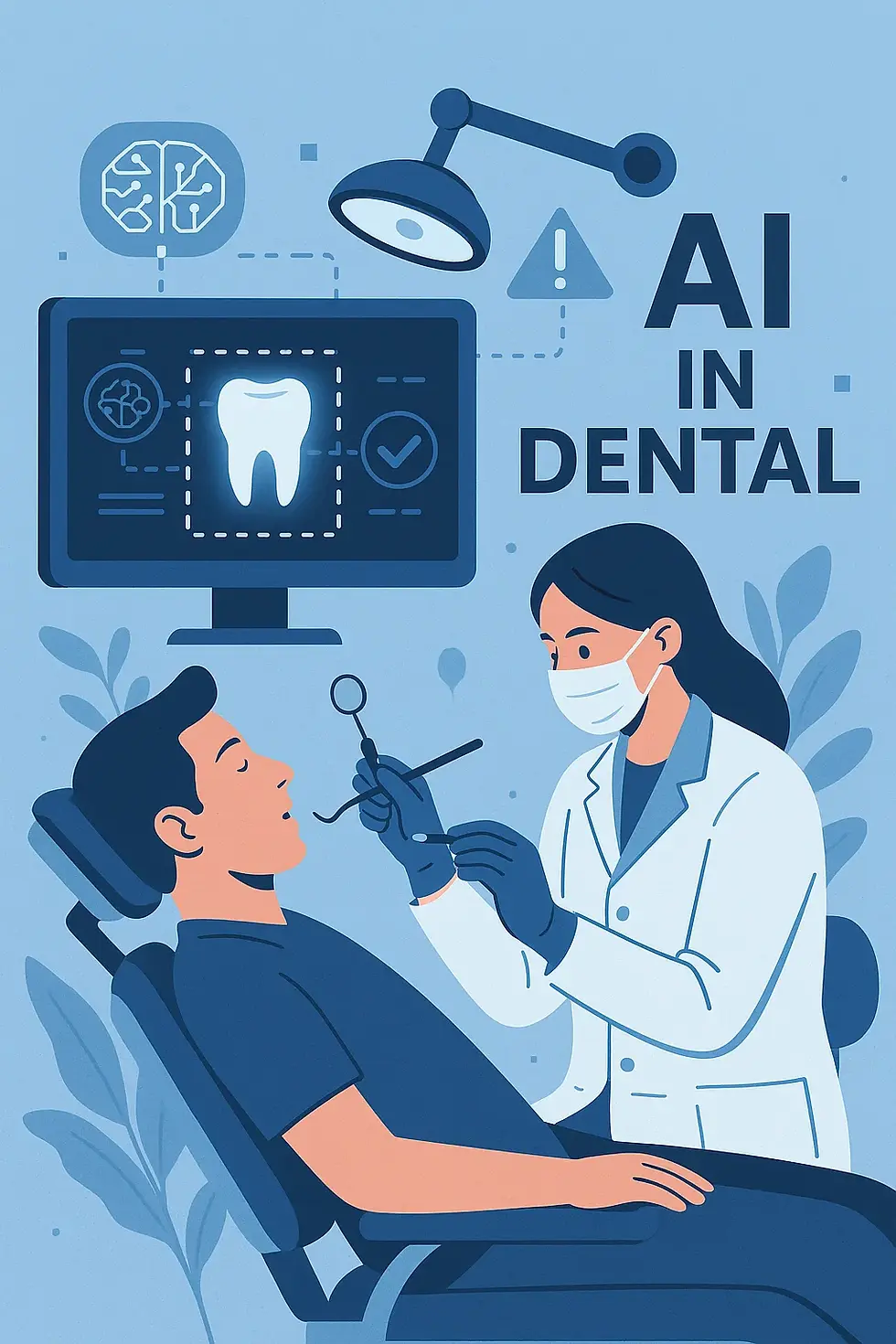Did you know that gum disease can affect the heart? Discover the connection between oral and cardiovascular health
- Doctor opal
- Aug 17
- 3 min read
What is gum disease?
Gum disease, also known as gingivitis and periodontitis, is an infection of the tissues that surround and support your teeth. Gingivitis is the early stage, marked by redness, swelling, and bleeding gums; if untreated, it can progress to periodontitis. In periodontitis, gums pull away from the teeth and form pockets where bacteria accumulate, destroying the bone and possibly leading to tooth loss. But beyond the mouth, gum infections have serious effects on your whole body.

How gum disease affects the heart
Research shows that bacteria from infected gums can enter the bloodstream and travel to vital organs. Once in the circulatory system, these bacteria contribute to plaque buildup in the arteries (atherosclerosis) and increase the risk of heart disease. The Mayo Clinic highlights that inflammation triggered by oral bacteria is linked to heart disease, blocked arteries, and even stroke. Periodontitis also makes it harder to control blood sugar levels in people with diabetes, which further raises cardiovascular risks.
Bacteria and blood clotting
When periodontal bacteria enter the blood, they trigger inflammation. This damages the lining of blood vessels and promotes clot formation. Over time, this process narrows arteries and raises the risk of heart attack or stroke.
Shared risk factors
Smoking, stress, and an unbalanced diet are risk factors for both gum disease and heart problems. Quitting smoking, eating a balanced diet, and exercising regularly protect not just your teeth but your cardiovascular system, too.
Other systemic effects of gum disease
The connection between oral health and general health extends beyond the heart. Oral bacteria can be inhaled into the lungs, contributing to respiratory infections such as pneumonia. In pregnant women, periodontitis has been linked to premature birth and low-birth-weight babies. For people with diabetes, gum inflammation makes blood sugar harder to control, worsening complications.
Warning signs of gum disease
Knowing the early symptoms helps you act in time:
Red, swollen, or tender gums
Bleeding while brushing or flossing
Persistent bad breath
Receding gums
Loose teeth
If you notice these signs, visiting a Periodontics specialist is essential. Our team offers treatments to control gum infection and prevent progression.
Tips to prevent periodontitis and protect your heart
Maintain strong oral hygiene
Brush your teeth twice daily with fluoride toothpaste and floss or use an oral irrigator daily. Don’t forget to brush your tongue and change your toothbrush every three to four months. These habits help eliminate plaque and reduce inflammation.
Visit the dentist regularly
Routine dental checkups at least twice a year are crucial for detecting gum problems early. You can schedule an appointment easily through our Book Online page. Our professionals will examine your gums and recommend tailored treatment if needed.
Adopt a healthy lifestyle
A balanced, low-sugar diet helps prevent cavities and reduce inflammation. Avoiding tobacco and limiting alcohol are essential for both oral and heart health. Regular exercise and stress control also promote overall wellness.
Specialized treatments
If gingivitis or periodontitis is diagnosed, professional treatments such as deep cleaning (scaling and root planing), periodontal surgery, or tissue regeneration can stop progression. Learn more in our Dentistry section.
Taking care of your gums is about much more than preventing tooth loss—it’s about protecting your overall health. Scientific evidence shows that gum disease affects the heart by allowing bacteria and inflammation to spread throughout the body. Good oral hygiene, regular dental visits, and healthy lifestyle choices are the best strategies to safeguard both your smile and your cardiovascular health. For personalized care, schedule your appointment today through our Book Online service.
Sources:




Comments